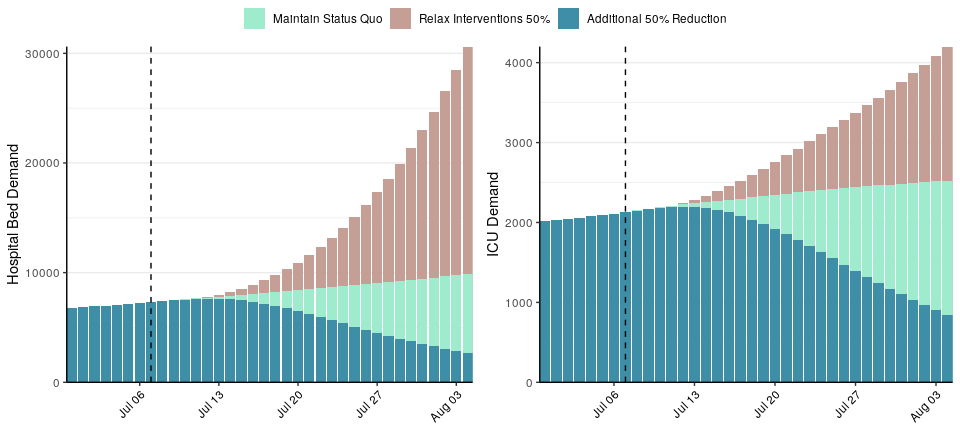Pakistan May Have Finally Controlled The Coronavirus
- Pakistan has been ranked among those with the lowest reproductive rate of the virus globally.
A recent study by Imperial College, London (ICL) suggests that the novel pandemic is currently “on its course to fade out” in Pakistan, ranking the country amongst those with the lowest reproductive rate of the virus globally. The effective reproductive rate of COVID19 in Pakistan is less than 1, meaning the virus is at present stable/growing slowly.


There has been a marked decline in the number of confirmed cases across all provinces. With a surge of 2,980 total positive cases in Pakistan in the past 24 hours, Sindh has reported 1,390 new cases, whereas 930 new cases have emerged in Punjab. KP has 445 new cases, while Balochistan and Islamabad have recorded 78 and 93 new cases respectively. The national tally now stands 237,448 confirmed cases with a total of 4,922 deaths.

The government recently made it mandatory to wear a mask in public gatherings and bolstered its attempts at contact tracing. While those seeking critical care have been hospitalized, most asymptomatic cases have been isolating at home. The ‘smart lockdown’ placed on local hotspots has led to a visible decline in the spread of the coronavirus. Some believe the decline in reported cases is due to a deliberate attempt by the government to hide cases by reducing testing. The study by ICL, however, suggests that the state is currently reporting 76.1% of the actual cases in Pakistan – the highest compared to its immediate neighbors as India is reporting 45.6% of the actual cases, while Iran and Afghanistan are reporting 23.6% and 34.6% respectively.

The Imperial College London study forecasts 9,753 high-pressure oxygen hospital beds will be needed in the next four weeks if no further interventions are done. Furthermore, 2,500 ICU beds may be required in the next four weeks. This remains within Pakistan's healthcare capacity, ensuring Coronavirus remains under government's control in Pakistan at least for now.
Despite the recovery, the National Command and Operation Center (NCOC) remains apprehensive of a possible surge after Eid ul Azha. The Minister of Planning, Development and Special Initiatives, Asad Umar, recently reiterated these concerns and responded by pointing towards the preemptive efforts being made by the government to tackle this projected rise. “On the occasion of Eid ul Azha a large number of people will gather at animal markets and then for Eid prayers and they would hug each other due to which the virus will spread”, he explained. Currently, 1,227 addition oxygenated beds have also been distributed to hospitals across the country in preparation of the projected surge.



























Comments
Comments are closed.